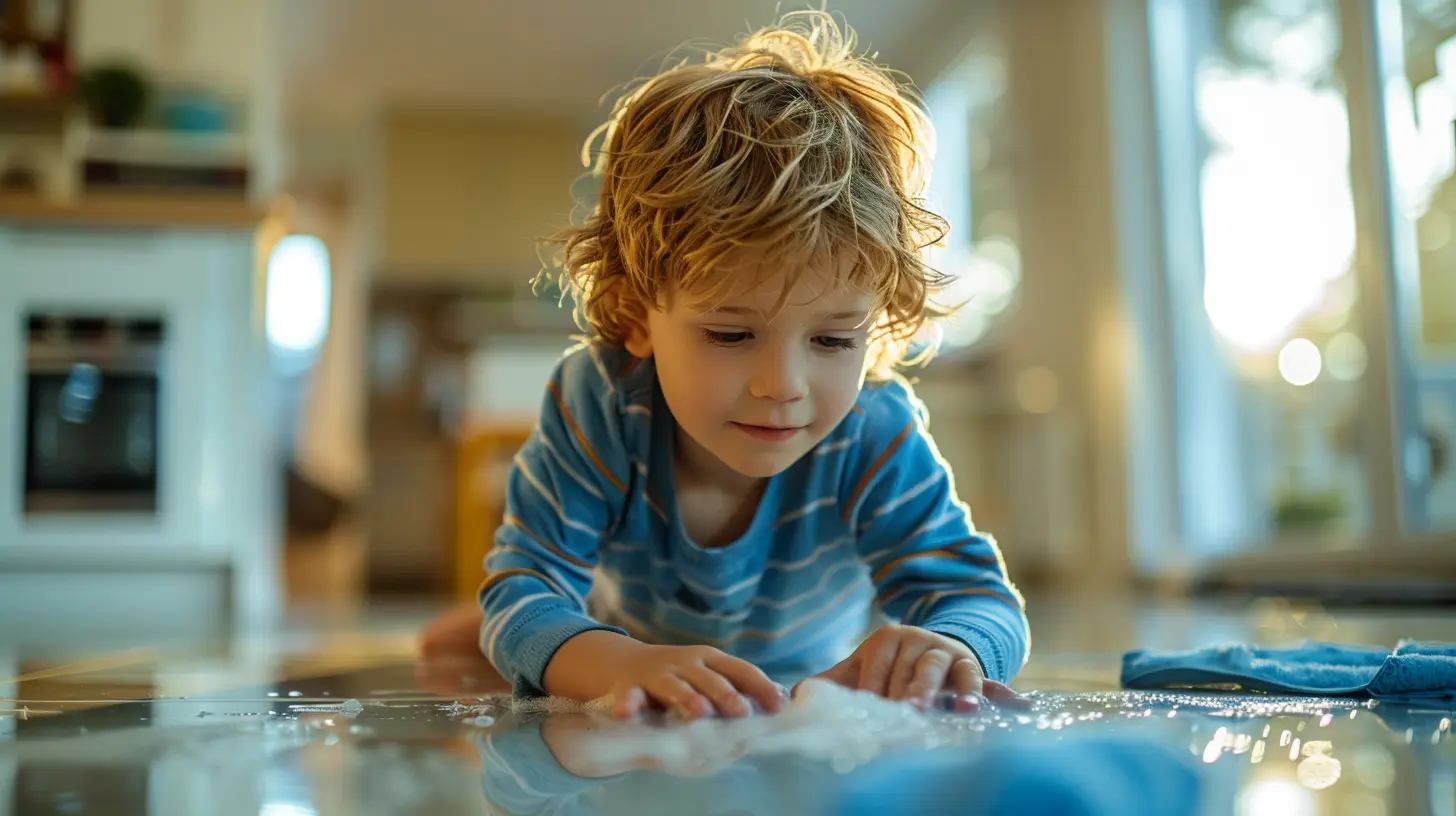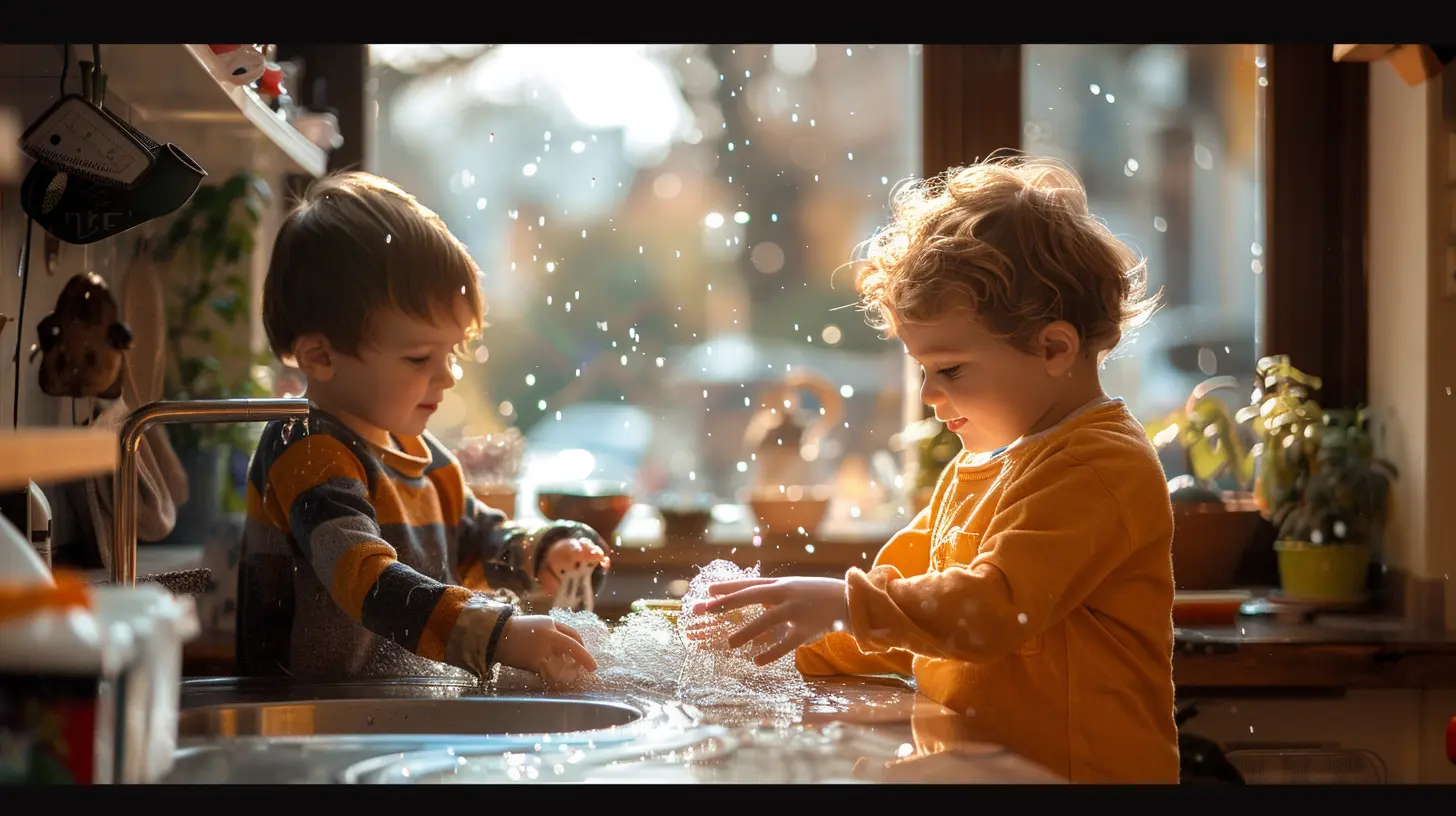Encouraging Cooperation: Getting Kids Excited About Household Tasks
20 June 2025
We’ve all been there—standing in the center of a whirlwind of toys, unwashed dishes, and piles of laundry, wishing we had a magic wand to make it all disappear. And while that wand doesn’t exist (yet), there is another tool we might be overlooking: our kids! Before you roll your eyes in disbelief, hear me out. Yes, it is possible to get kids excited about household tasks. In fact, with the right strategy, you might just turn them into tiny cleaning enthusiasts. So, let’s dive into how you can encourage cooperation and get kids excited about helping around the house.
Why Should Kids Help Out at Home?
Before we get into the "how," let’s talk about the "why." Why should kids be involved in household tasks in the first place? It’s easy to feel like it’s simpler to handle chores on your own, especially when kids can turn a 5-minute pick-up into a 25-minute, tantrum-laden saga. But bear with me. Getting your kids involved has long-term benefits for both you and them.Teaching Responsibility and Life Skills
Household tasks give your child a tangible way to learn responsibility. Whether it’s making their bed or setting the table, these small actions foster an understanding that everyone in the family contributes to the home’s upkeep. They also build essential life skills they'll carry into adulthood. After all, we don’t want to raise kids who have no idea what laundry detergent is by the time they’re 18!Boosting Confidence and Independence
When kids successfully complete tasks—no matter how small—they feel a sense of accomplishment. This helps boost their self-esteem and increases their confidence. It also creates a sense of independence, showing them that they are capable of doing things on their own.Strengthening the Family Unit
Working together on tasks fosters collaboration and teamwork within the family. It’s an opportunity for bonding and teaches kids that everyone plays a part in keeping the household running smoothly. Plus, when everyone contributes, there’s more time for family play and relaxation.
Strategies to Get Your Kids on Board With Household Chores
Okay, so we’ve established why it’s important for kids to help around the house. But how do we make this happen without the inevitable groaning and foot-dragging? Trust me, with a little creativity and patience, you can get your kids to actually want to help out. Here’s how:1. Turn Chores into Games
Kids love games, right? Why not tap into that energy and enthusiasm by turning chores into a fun challenge? Let’s say you need the living room tidied up. Set a timer for 5 or 10 minutes and challenge your kids to pick up as many toys as they can before the buzzer sounds—it's like a race against the clock! Or create a scavenger hunt where they have to find and clean certain objects around the house.Making chores playful reduces their "work" perception, making it feel more like playtime than punishment. After all, who says folding laundry can’t be a game of "who can match the most socks"?
2. Offer Choices
Kids love to be in charge—even if just for a moment. Giving them choices can make them feel empowered and more willing to cooperate. For example, instead of saying, “You have to clean your room,” you can ask, “Do you want to clean your room first or help set the table?” Offering a choice makes them feel like they are in control, while still ensuring the task gets done.3. Give Age-Appropriate Tasks
It’s important to assign tasks that are suitable for your child’s age and ability level. You wouldn’t expect a 4-year-old to vacuum the entire house, but they can certainly help with tidying up their toys or wiping down a table. Older kids, on the other hand, can handle more complex tasks like taking out the trash, helping with dinner, or folding clothes.Here’s a quick guide to child-friendly tasks by age group:
- Toddlers (2-3 years): Picking up toys, putting dirty clothes in the laundry basket, wiping surfaces with a cloth.
- Preschoolers (4-6 years): Setting the table, watering plants, feeding pets, sorting laundry.
- School-Aged Kids (7-10 years): Making their bed, helping with laundry, sweeping, loading/unloading the dishwasher.
- Tweens & Teens (11+ years): Vacuuming, taking out trash, cooking simple meals, cleaning bathrooms.
4. Lead by Example
If you're excited about doing household tasks, your kids are more likely to follow suit. It’s hard to inspire excitement if you’re sighing and mumbling about how much you hate cleaning. Show them that cleaning isn’t a punishment, but part of keeping a cozy, functional home. Don’t be afraid to put on some music and dance around while you clean—it’s contagious!5. Use Positive Reinforcement
It’s always more motivational to hear “great job!” than a critique about missed spots. Praise your children for their efforts, no matter how small. Focus on the positive, like, “Wow, you really did a fantastic job putting away your toys. I can tell you worked hard!”Positive reinforcement helps to build up your child’s confidence and makes them feel proud of their contributions. You can also create a reward system—marking tasks off a chart can be a simple yet effective motivational tool. Once they reach a certain number of completed tasks, they can choose a small reward, like extra screen time or a special treat.
6. Break It Down Into Smaller Steps
Sometimes, kids feel overwhelmed by the size of the task ahead of them. Telling them to “clean your room” might sound like an impossible mission, especially if it's a mess of epic proportions. Instead, break it down: “Put your books on the shelf, stuffies in the basket, and dirty clothes in the hamper.” Breaking it up makes it feel achievable and less like an overwhelming chore.
7. Make It Routine
Consistency is key in just about everything when it comes to parenting, and household chores are no exception. By making certain tasks part of their everyday routine, kids come to expect it and, over time, see it as a normal part of the day. Have them make their bed every morning or clear their plate after each meal. When it becomes part of the rhythm of their daily life, they’re less likely to resist.
8. Emphasize the "Team Effort" Mentality
Kids love to feel like part of a team, especially when that team is the family. Let them know their contribution is important and appreciated. You might say something like, “When we all work together, things get done faster, and we can spend more time having fun!” This can foster a sense of camaraderie and purpose, making them feel like they’re valuable members of the family team.Common Pitfalls to Avoid
Now, as much as we want to sprinkle fairy dust and have our homes cleaned to sparkling perfection by our little helpers, there are often bumps along the way. Here are a few common mistakes to avoid when getting kids to help with household tasks:1. Expecting Perfection
Your child’s version of “clean” may not meet your adult standards—and that’s okay! Focus on the effort they’re putting in rather than the end result. The more they practice, the better they’ll get.2. Overloading Them With Tasks
Set reasonable expectations. Overloading your kids with too many chores at once can lead to frustration and resistance. Keep it manageable, and remember that even small tasks are steps towards building responsibility.3. Using Chores as Punishment
Making chores a punishment creates negative associations with helping out. Instead, frame household tasks as something positive—a way to contribute to the family or a game they get to play. If chores are constantly framed as a consequence for bad behavior, they'll start to associate them with negativity.4. Skipping the Praise
Even if they don’t do a perfect job, always remember to praise their effort. If they don’t receive positive feedback, they’ll likely become discouraged and lose interest in helping out.Conclusion
Getting kids excited about household tasks isn’t impossible—it just requires a little creativity and understanding. By making it fun, giving them age-appropriate responsibilities, and celebrating their contributions, you can build a positive relationship between your kids and the concept of helping around the house.The end result? A home where everyone chips in, and those wild toy-strewn living rooms start becoming a distant memory. Plus, when the whole family works together, you’ll have more quality time to enjoy with your kids doing something fun. So, the next time you’re standing in a pile of laundry, take a deep breath, grab your kids, and start turning those chores into a family adventure. You’ve got this!
all images in this post were generated using AI tools
Category:
Kids And ChoresAuthor:

Maya Underwood
Discussion
rate this article
2 comments
Maria McDowell
Loved this article! Great tips to make household tasks fun and engaging for kids.
June 21, 2025 at 3:33 PM

Maya Underwood
Thank you so much! I'm glad you found the tips helpful. Engaging kids in household tasks can really make a difference!
Elin McCord
I appreciate the practical tips shared here. Involving kids in chores can foster teamwork and responsibility while making tasks enjoyable.
June 20, 2025 at 3:17 AM

Maya Underwood
Thank you! I'm glad you found the tips helpful—encouraging teamwork in chores really does make a difference!


